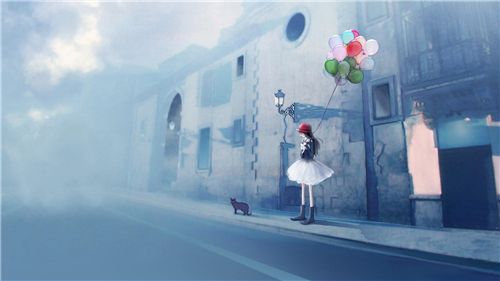英语口语是被英语国家人民普遍应用的口头交流的语言形式。今天小编给大家带来了交际英语口语,希望可以帮助到大家,下面小编就和大家分享,来欣赏一下吧。
Conversation 1
A:I've come to say good-bye.
B:When are you off ?
A:I'm flying home on Sunday afternoon .
B:Well , good-bye . See you soon .
A:Please don't forget to say good-bye to the rest of the family for me .
Conversation 2
A:I'd like to say good-bye to everyone .
B:What time are you going ?
A:My plane leaves at 7:25.
B:Well , good-bye and have a good trip!
A:Good-bye . Remember to look me up if you're ever in Washington .
Conversation 3
A:I'm calling to say good-bye .
B:When do you leave?
A: I'm catching the 11:00 train .
B: Take care of yourself and don't forget to keep in touch .
A:: Goodbye .Thanks again for everything .
Conversation 4
A : I just dropped in to say good-bye.
B : What time are you leaving ?
A : I'm going to try to leave by 10:00.
B : Take care and give my best to your parents .
A : Good-bye . Hope to see you soon again next year .
B : Don't forget to call us if you're in Tokyo.
翻译:
会话1。
我是来道别的。
你什么时候下班?
请别忘了替我向家里的其他人道别。
会话2。
我想和大家说再见。
你什么时候去?
我的飞机7:25起飞。
再见。如果你在华盛顿,记得来找我。
会话3。
你什么时候走?
我要赶11点的火车。
对话4。
我只是顺道来跟你道别的。
你什么时候走?
我打算尽量在10:00之前离开。
保重,代我向你父母问好。
如果你在东京,别忘了打电话给我们。
Conversation 1
A : Excuse me , sir . Is there a barber near here ?
B : Yes , the nearest one is at the third cross of this road.
A : I'm a stranger here . How can I get there , please ?
B : Just walk down the road for a few minutes , and you'll find it on your right .
A : Thank you very much .
Conversation 2
A : Excuse me , please . Could you tell me how to get to the No.10 Middle School?
B : Walk down this road , take the fourth turn to the right . Then you'll see it .
A : Is it far from here to there ?
B : No. It's only about five minutes' walk .
A : Many thanks !
B : Not at all.
Conversation 3
A : Excuse me , sir , could you please tell me the way to Xidan Bookstore ?
B : Yes , of course . Would you like to walk there or take a bus ?
A : Er...Is it far from here ?
B : It's just about ten minutes' walk . Go along this street , on the third cross you'll find it on your left .
A : Then I'll walk . Many thanks .
B : Not at all .
Conversation 4
A : Excuse me , sir , Is this the road to the peace Store?
B : You could get there this way , but it'd be faster to go along the Wort Street .
A : Where's Wort Street , please?
B : Turn right at the third intersection, you'll see the street and then walk along the street to the south.
A : How far is it from the Wort Street ?
B : Just walk for a few minutes , you'll find it .
A : Thank you very much .
A:Hey! What's up ? 嘿,怎么样?
B:Hi ,John!I haven't seen you for ages .嗨,John,好久不见了!
A:Yeah,I've been out of town.是啊,我才刚从外地回来.
B:So how have you been?所以呢,你近来还好吗?
A:Great!Work is really busy now,but it's fun .好的很,工作很忙,但我乐在其中 .
详细解说.
1:What's up ? 怎么样?
同义词句
What's cooking ?怎么样?
What's going on?怎么样?
What's happening ?怎么样?
What's new?有什么新闻?
How are you doing ?你好吗?
How are you ?你好吗?
2:I haven't seen you for ages .好久不见
同义词句
I haven't seen you for long time.好久不见
Long time no see .It's been a long time 好久不见
3:I've been out of town .我才从外地回来
I'll be out of town on business next week .下星期我会去外地出差
She'll be in town on friday then away for the next weekend .她星期五会在,于周末时间她会离开
My parents will be in town for a few days .我父母会在这里呆几天
4:How have you been? 近来还好吗?
How are things? 一切都好吗?
How are your parents? 你父母还好吗?
5:Great.好的很
同义词句
Fine.好
Not bad .不错
Good.很好
It couldn't be better.再好不过了
Nothing to complain about.没什么可以抱怨的
Not so good.不太好
6:Work is really busy now,but it's fun.工作很忙,但很有乐趣
同义词句
I'm really enjoying it.我很喜欢做这件事
I'm having fun.我得到很多乐趣
It's really interesting.很有趣
It's very rewarding.很有成就感
1 section
n.部分,章节,地段;断面,剖面;部门,科;阶层,界;vt.把…分成段
参考例句:
There is one section of very long road to leave. 有一段很长的路要走。
How many people work in your section?你部门有多少人?
2 conversation
参考例句:
Conversation is one of pleasures of life.交谈是人生一大乐趣。
We'll carry on a conversation with her tomorrow.我们将于明天与她会谈。
3 someone
pron.某人,有人
参考例句:
I can hear someone knocking.我听到有人敲门。
Someone wants to see her.有人找她。
4 seen
vbl.(see的过去分词)看见
参考例句:
Since I left college, I have not seen him.自从我离开大学以后,就没有见过他了。
I hope to have seen the film next week.我希望下星期能看到这部电影。
5 cooking
n.烹调;烹饪
参考例句:
What do you mean,you don't like my cooking?你是什么意思,你是不喜欢我做的饭?
I have little knowledge of cooking.我几乎不懂烹饪技术。
6 going
n.去,离去,地面(或道路)的状况,工作情况;(复数形式)goings: 行为;adj.进行中的,流行的,现存的
参考例句:
We're going to listen to a report this afternoon. 今天下午我们要去听报告。
He hates leaving the office and going on holiday.他不愿离开办公室去度假。
7 business
n.商业, 买卖, 交易, 生意, 事情, 事物, 营业, 商行
参考例句:
My father built his business on years of hard work. 我父亲多年奋斗创立了自己的事业。
We must finish up this business in a day or two. 我们必须在一两天内把这事结束。
8 few
adj.很少的,不多的,少数的;int.少数的
参考例句:
There are few woods in that area.那个地区几乎没有森林。
I have a few questions.我有些问题要问你。
9 complain
v.抱怨;发牢骚
参考例句:
They did nothing but complain.他们只知道抱怨。
You have no reason to complain.你没有理由抱怨。
10 rewarding
adj.令人满意的;利益的
参考例句:
Gardening is a very rewarding pastime.园艺劳动是非常有益的消遣。
She finds motherhood very rewarding.她认为做母亲得偿所愿。
请结账。
Bill, please.
I'd like the check, please.
在哪儿付钱?
Where should I pay?
我请客。
It's on me.
It's on me. (我请客。)
Oh! How nice! (哦!那太好了,谢谢!)
This is my treat.
I'll pay for dinner.
I'll treat you.
I'll pay for drinks. (我付饮料的钱。)
我来付。
I'll take care of it.
这是什么的钱?
What is this for?
What is this charge for?
What is this amount for?
我觉得这儿算错了。
I'm afraid there is a mistake here. .'m afraid… “我觉得是不是……”,一般用于不太好的事情。mistake 表示“错误”。
我们各付各的吧。
Let's go Dutch. .utch 表示“荷兰人”,而go Dutch则表示“自己的费用自己付”、“分摊”。
Let's split the bill.
Let's divide the cost.
我们分开付款。
We'd like to pay separately.
We'd like to pay separately. (我们分开付款。)
All right. (明白了。)
不用找钱了。
Keep the change.
请开张发票。
May I have a receipt, please?
我有点饿了。
I'm kind of hungry.
I'm kind of hungry. How about you? (我有点儿饿了,你呢?)
Yeah, it's lunch time. (是的,到了吃午饭的时候了。)
I'm getting hungry. (我已经饿了。)
我都快饿死了。
I'm starving. .tarve是动词,表示“饿得不得了”。
I'm very hungry.
I'm extremely hungry.
I could eat a horse. .译是“我能吃下一匹马”。表示饿的程度,“非常地饿”。
我渴了。
I'm thirsty.
闻着真香。
It smells good.
It smells nice.
我在节食。
I'm on a diet.
I'm on a diet. (我在节食呢。)
How's it going so far? (现在感觉怎么样?)
看上去真好吃!
This looks great! .到食物,说“好像很好吃”。
This looks good!
This looks delicious!
My mouth is watering. (我都要流口水了!)
This smells great! .于闻着味道,说“很香”时。
看上去都好吃。
They all look good.
They all look so delicious, don't they?
They both look great. .上两个例句是就3个以上的东西或饭菜所说。这一句只限于说2个东西或饭菜。
我可以吃这个吗?
Can I eat this?
Is this edible?
你不能吃这个。
You can't eat that.
It's inedible.
这个好吃吗?
Is this delicious?
Does this taste good?
好吃。
It's good.
How is it? (怎么样?)
It's good. (很好吃。)
Good.
It's delicious.
Delicious!
Yummy! .性和孩子们常用。
不好吃。
It's not good.
It doesn't taste good.
味道很怪。
This tastes strange.
This tastes funny. .unny “怪的,奇妙的”。
This tastes weird. .eird “不可思议的,奇怪的”。
我什么都能吃。
I eat anything.
I can eat anything.
别吃太多。
Don't overeat.
Don't eat too much.
Don't eat so much.
他真能吃。
He's a big eater.
我什么都不想吃。
I don't feel like eating anything. .ell like … ing “产生想要(饮食等)的感觉”。
我是海量。
I drink like a fish.
我酒量小。
I get drunk easily.
我酒量还可以。
I can hold my own. .old my own表示“一般”、“比赛等中不输”、“不亚于任何人”。
I can hold my liquor.
I can drink a lot. (我能喝很多酒。)
I'm a strong drinker. (我的酒量大。)
吃蛋糕会发胖。
Cake is fattening. .atten 有“使人胖”的意思。
你喝咖啡吗?
Would you like some coffee?
Would you like some coffee? (你喝咖啡吗?)
Not now, thanks. (现在不喝,谢谢。)
请把盐递给我。
Please pass me the salt. .ass 在饭桌上“传递,递过来”。
Could I have the salt, please?
Could you hand me the salt, please?
这是大酱汤。
It's called misoshiru.
This is misoshiru.
This is called misoshiru.
寿司怎么吃呀?
How do you eat sushi?
你得蘸酱油。
You dip it in soy sauce. .ip 表示“浸泡或涂抹液体”。
Place the sushi in some soy sauce.
你会用筷子吗?
Can you use chopsticks? .子是chopsticks。
这是什么鱼?
What kind of fish is this?
What kind of fish is this? (这是什么鱼?)
Oh, that's tuna. (啊,那是金枪鱼。)
真辣!
It's spicy.
It's hot.
真咸。
It's salty.
真甜。
It's sweet.
真脆。
It's crispy.
真粘。
It's slimy.
这咖啡不够热。
This coffee is not hot enough.
This coffee is lukewarm.
面包没烤透。
This bread is soggy. .oggy “面包等没有烤透的”状态。
这土豆片变味了。
These potato chips are stale. .tale也可用来表示面包等“不新鲜”、“走味”、“有霉味的”。
These potato chips are soft.
这牛奶酸了。
This milk is sour.
This milk is sour. (这牛奶酸了。)
I'll buy more today. (今天我再买点吧。)
这咖啡太苦了。
This coffee tastes bitter.
This coffee is bitter.
这肉太老。
This meat is tough.
This meat is tender. (这肉挺嫩。)
味很重。
This has a strong flavor.
This has a weak flavor. (味道淡。)
太咸了。
It's too salty.
太油腻。
It's too greasy.
It's too oily.
太烫了。
It's too hot. .气上是“太烫了”。
It's too cold. (太凉了。)
我的嘴都麻了。
My mouth is burning. .了辣椒或芥末等辛辣的东西时。burn除了“燃烧”、“烧焦”以外,还有“嘴和舌头都麻木了”的意思。
My mouth is on fire.
你也来点儿吗?
Would you like some? .自己吃的东西向别人推荐时。
Would you like some? (你也来点儿吗?)
Yes, please. (好吧。).绝时用
No, thank you. I'm fine. (不,谢谢,我不要),是比较有礼貌的说法。
我想再要一点葡萄酒。
I'd like some more wine.
我的叉子掉了。
I dropped my fork.
再要一杯咖啡。
I'd like another cup of coffee.
真好吃。
That was good. .了食品、饮料之外,还表示事情顺利。
That was delicious.
我吃饱了。
I'm very full.
I couldn't eat another bite. (再也吃不下了。)
I've had enough. (我已经吃得够多了。)
I'm very hungry. (我很饿。)
食物不够了。
There isn't enough (food)。
There isn't enough food. (食物不够了。)
I'll make more. (我再做点儿。)
再喝一杯吗?
Would you like another drink?
Would you like another drink? (再喝一杯吗?)
No, I think I've had enough. (不,我喝得够多的了。)
您喝什么样的咖啡?
How do you like your coffee? .样询问是表示“咖啡里要加糖和牛奶吗?”。喝清咖啡时,回答是Black will be fine. 只放糖时Just sugar, please. 只放牛奶是Just cream, please.
How do you like your coffee? (您喝什么样的咖啡?)
With cream and sugar, please. (放牛奶和糖的。)
How do you want you coffee?
上
★ 2020年六年级英语说课稿范文五篇
上一篇:日常交际英语口语分享
下一篇:最新交际英语口语分享


